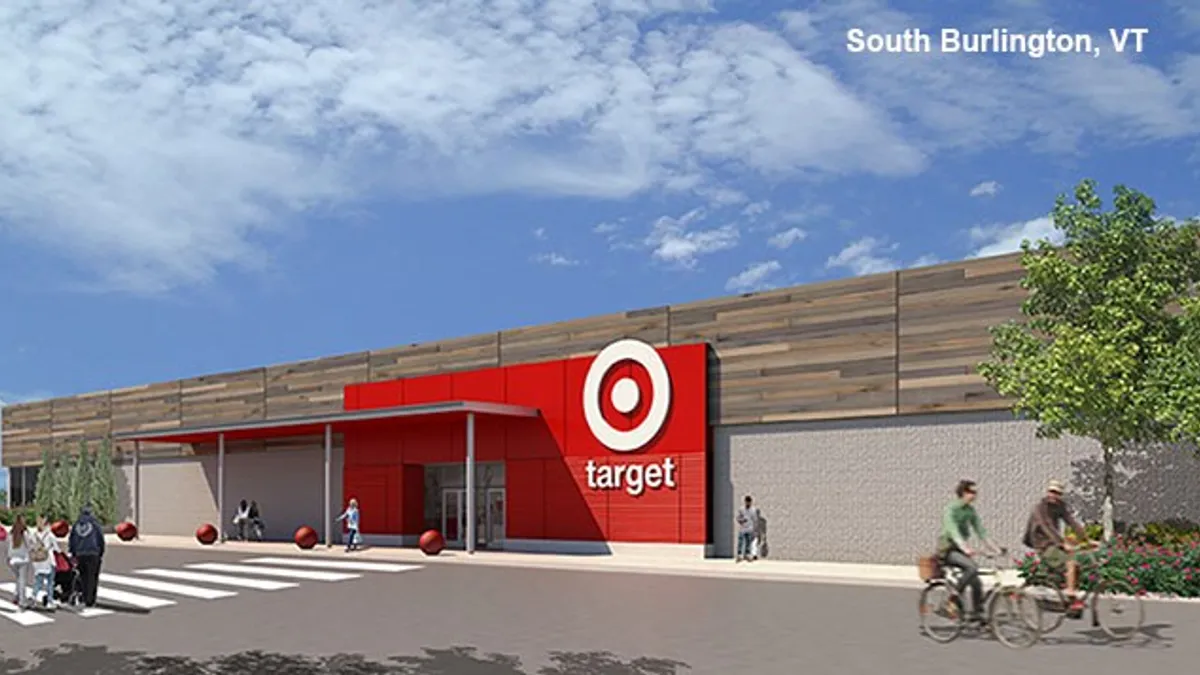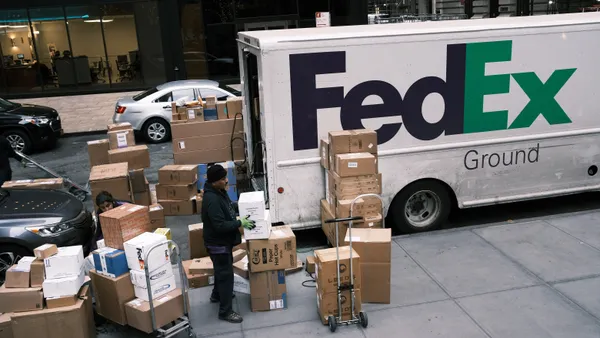Dive Brief:
- Deliv is going out of business, and Target has reached a deal to acquire the same-day delivery startup's technology and some of its staff, a source familiar with the matter confirmed to Supply Chain Dive. The two companies have a binding agreement that is expected to close in the coming weeks, the person said. The acquisition was first reported by NBC.
- Target will acquire Deliv's proprietary technology that assists in the batching and routing of orders, the person familiar with the deal told Supply Chain Dive. Target will not acquire any of the existing relationships that Deliv had with customers, which will end, the person said. Deliv’s founder and Chief Executive Daphne Carmeli emailed employees last week letting them know the company was stopping operations and its last day would be "on or before" Aug. 4, according to The Wall Street Journal.
- Deliv's technology will play a role in Target's research and development into improving the delivery process, but won't be implemented into the retailer's operations right away. Target is not disclosing the amount of the deal, but said it was not material.
Dive Insight:
Target, Walmart and other brick-and-mortar retailers have been working for years to bolster delivery offerings, as Amazon has gone from two-day to one-day shipping for Prime members. Deliv presented itself as a way to compete against the Seattle-based e-retail behemoth.
"It’s never been more important for retailers to adopt the latest in logistics management," Carmeli wrote in a 2017 op-ed. "Using an on-demand, third-party logistics partner allows them to offer an Amazon-equivalent customer experience without having to build it themselves."
Target has invested heavily in its delivery network over the last few years, including its $550 million cash acquisition of Shipt in 2017 and its acquisition of Grand Junction the same year.
But the demand for grocery delivery has increased in recent months due to the coronavirus pandemic. The number of online grocery orders has increased by nearly 80% year-to-date in 2020 compared to 2019, according to numbers through April 27 from Rakuten Intelligence.
Target had already expanded its delivery network, since its original acquisition of Shipt. The service had a network of 20,000 shoppers in 2017, but it has now grown to 100,000, Target CEO Brian Cornell said on the company's earnings call in March. Sales fulfilled by same-day delivery grew 90% last year, Cornell said.
Target's stores are at the heart of its fulfillment model, which the company said acts as an omnichannel hub for its operations. Pickers can access inventory for online sales in the same store where customers are grocery shopping in person.
"This new operating model is also how we enable our growing suite of fulfillment services. From drive up to pick up and delivery from Shipt, our stores are serving up a whole range of options to meet guests however they want to shop and as soon as an hour," Target Chief Operating Officer John Mulligan said in March.
But the move to store-based fulfillment has meant Target has had to figure out the right mix of inventory to help avoid split shipments. "Even though store fulfillment continues to grow rapidly, the rate of split shipments this year is running lower both in our stores and in total compared with last year," Mulligan said in 2019. Deliv's batching technology could play a role in improving this process even further.
The retailer expects Deliv's technology could help make these deliveries faster and cheaper, according to a press release on the deal. In her letter to employees, Carmeli blamed "a confluence of events" for the company's closure, according to The Wall Street Journal.













